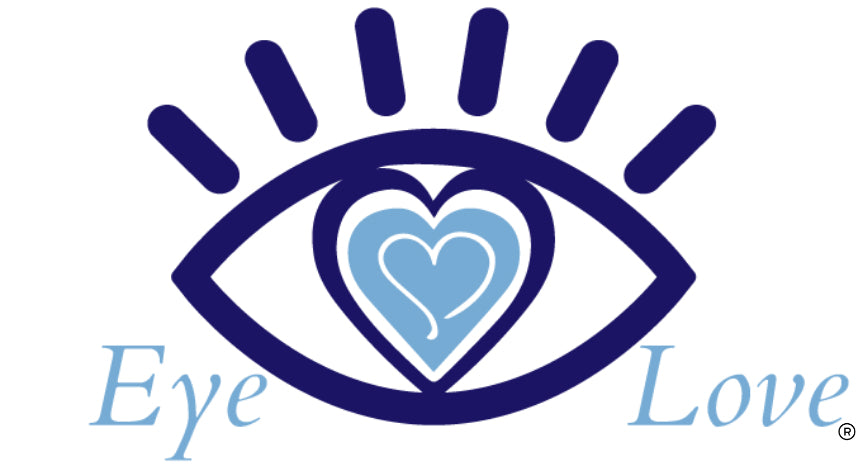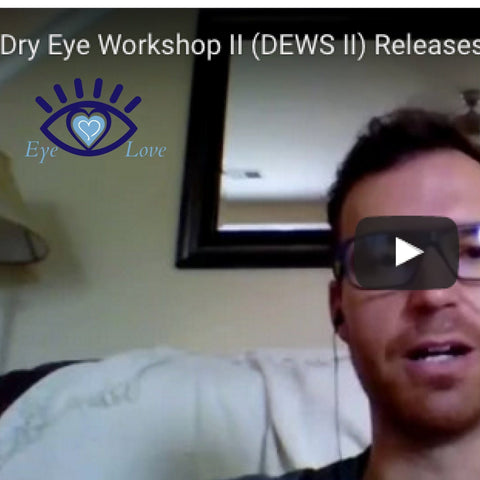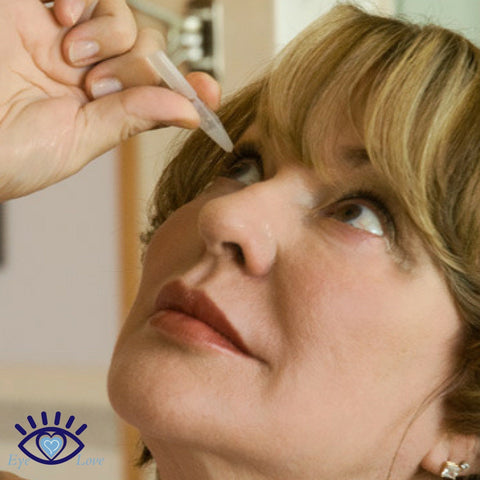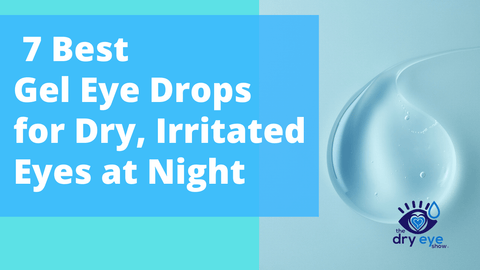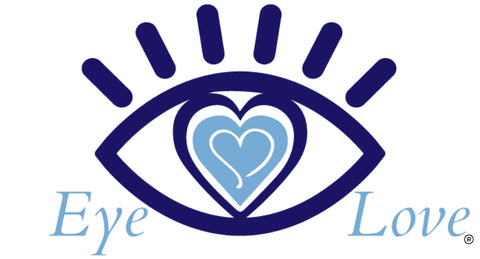Dr. Travis Zigler Discusses Dry Eye Treatment According to the Latest Dry Eye Syndrome Workshop (DEWS) II Report
Hey there, Dr. Travis Zigler with Eye Love. I wanted to go over the newly released Dry Eye Workshop Part 2 Report. This is a report where about 150 clinicians come together and define the definition of dry eye and how to treat it according to different protocols, research, and clinical based evidence.
Stage 1 of dry eye is a trace to mild dry eye syndrome. Usually as clinician I see some meibomian gland dysfunction and you might have some complaints of dryness, not much, maybe some irritation in your eyes but this is the trace to mild dry eye. The treatment for this is what I push a lot because my wife and I treat more holistically than with medications. We still use medications but holistic is the way to go because, again, a disease is your body’s way of telling you that you’re doing something wrong. Figuring out what’s wrong, fixing what’s wrong, is what is going to make you feel a lot better and it’s going to give you a more natural healing process without the use of artificial medications and prescriptions that come with side effects.
So, Stage 1 is what I really love and that’s the trace to mild dry eye. And anybody at any stage should be doing these treatments. So, modifying the local environment. The fan blowing behind me is an example of an environmental factor that not as good for your eyes because it’s wind blowing. Air conditioning in your car is going to cause you a little bit more dry eye as well. Being outside in the wind, being around a smoky environment... that’s going to cause dryness. Pets are sometimes going to cause dryness so, unfortunately, if your pet is causing it you might have to get rid of them but that’s when you start to weigh the benefits versus the non benefits.
The secondary thing is dietary modifications and I push this quite a bit too at our clinic. Omega 3 fatty acids or supplements are going to help out tremendously or eating things like salmon, walnuts, flax seed, chia seed, free range eggs are all going to help with that. Increasing your omega 3 supplementation with our supplement and then also increasing leafy green consumption with carotenoids. Leafy greens have lutein, and carotenoids are brightly colored vegetables like red peppers, yellow, and orange peppers, and carrots. Those are all good for eyes because they have a lot pantothenic acid such as lutein, violaxanthin, capsanthin.
Eliminating synthetic and topical medications is next. Preservatives in topical medication drops can cause a lot of problems. Getting a non-preserved eye drop is a must. Lastly, systemic medications for blood pressure as well as anti-histamines, birth control, hormone replacement ...those can all cause a lot of dryness. Get rid of those if you can.
Again, you can get rid of all these medications if you go back to number 2, dietary modifications. My wife and I eat a mostly vegetarian diet. Vegetarian does not mean eating pasta and things like that. That’s still very processed. Vegetarian to us means that we eat almost all produce. We eat meat once to twice a month and we just don’t eat it at home and so that’s the challenge I give to you is if you want to shift your lifestyle, switch to almost all produce and eat meat once to twice a month. Just try to eat it when you’re going out if needed.
Lid hygiene, lid hygiene is a big one for Stage 1 as well. Lid hygiene is simply using our eyelid and lash cleanser, which is going to help with that and you’re just cleaning up those eyelids which is going to make your eyelids function better and then finally warm compresses. Warm compresses are very great for symptom relief. Heat an eye mask about 20 seconds in the microwave, put it over your closed eyes for about 10 minutes, and then just massage the eyelids gently. This is going to help get the glands moving again. It will help you feel a lot better. So, that’s the very first stage of dry eye.
Stage 2 is more of a mild to moderate dry eye syndrome. So, changing to a non-preserved topical lubricant, I recommend that from the get go. Using tea tree oil if demodex is present is also important, and we have a soap for that.
Tear conservation with punctual occlusion is another option in Stage 2. I don’t do this as much as I used to because I feel like if your eyes are inflamed trapping those inflammatory markers or inflammatory tears in your eye isn't good. There are mixed feelings on that, but this report does say punctual occlusion in stage 2. Moisture chamber goggles when you're going to sleep or walking around that’s going to help keep more moisture in your eyes. Ointments at night time can also be used. Lipiflow and IPL (intense pulsed light) therapy are going to be helpful at this stage as well cause we’re treating the meibomian glands. Antibiotics such as doxycycline are helpful at this point, especially for those with Rosacea. Limited duration topical steroids can be used for a very limited time and can help out. And then drops like cyclosporin/Restasis and lifitegrast/Xiidra are also used at this stage well. I tend to jump more on the steroid wagon and if that seems to work really well then I’ll try Restasis or Xiidra.
Stage 3 is moderate to severe dry eye. And that’s when we start talking about autologous serum, where they draw your blood, separate out the serum, and then make an eye drop for you. We sometimes use scleral lenses at this stage, which are large, hard lenses that bathe your eyes in water at all times.
Stage 4 is severe dry eye and when we begin using topical steroids long term. I have a couple of patients that are on steroids long term and that seems to work for them. We just monitor them very closely for side effects such as cataracts and eye pressure increases. An amniotic membrane graft like Prokera can also come into play here. That’s going to really help you out as far just putting stem cells on your eye that’s just going help soothe and heal every part of your eye. Some of my patients would do that every 3 months or so.
There are a few other treatments here, but we don’t need to go into them here. What I push is everything on that 1st stage: dietary modifications, exercising, modifying your local environment, moving somewhere where it’s humid, and reducing your use of medications that cause that kind of long term dryness problem. Dietary modifications with leafy green vegetables and omega 3 and omega 3 supplements, lid hygiene products such as our Heyedrate Lid and Lash Cleanser, and warm compresses eye mask. Hopefully you won’t need an eye drop but, if you do, use a lipid based drop like Refresh Advanced preservative free or Retain MGD.
So that's a brief overview of the DEWS Dry Eye Workshop Part 2!
One Love,

Dr. Travis Zigler
